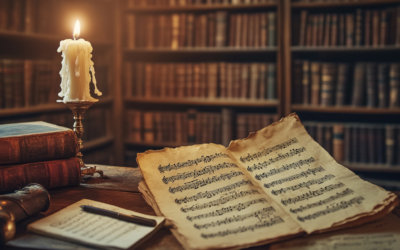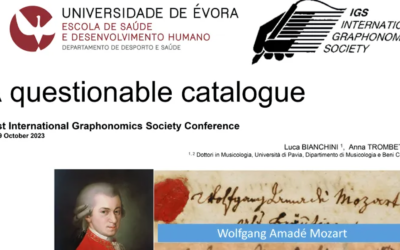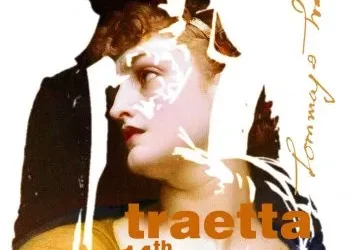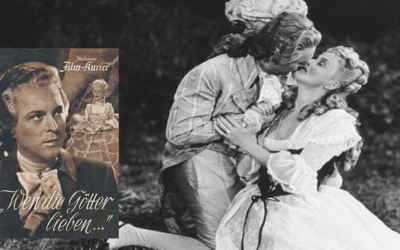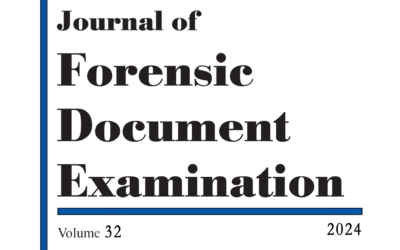Leopold Mozart’s Literary Theft
The Forgotten Scandal Behind the Poem at the Mozarteum
Hidden within the Mozarteum’s archives lies a poem that has long been hailed as a tribute to the young Mozart children. But behind this innocent façade is a story of deception, literary theft, and one father’s ambition to rewrite history.
Mozart: The Fall of the Gods
This book offers a fresh and critical look at the life of Wolfgang Amadeus Mozart, challenging the myths that have surrounded him for centuries. We strip away the romanticised image of the “natural genius” and delve into the contradictions within Mozart’s extensive biographies. Backed by nearly 2,000 meticulously sourced citations, this work invites readers to explore a deeper, more complex understanding of Mozart. Perfect for those who wish to question the traditional narrative, this biography is a must-read for serious music lovers and historians.
"Leopold Mozart turned a tribute to French musicians into false praise for his own children, altering the legacy of both."
@MozartrazoM
When we think of the Mozart family, it’s easy to imagine a picture of prodigious musical talent nurtured by the guidance of a loving father. Leopold Mozart has long been seen as a proud patriarch, tirelessly promoting his children’s gifts to the courts of Europe. However, there’s a lesser-known story that reveals a much darker side of his ambition—a tale of literary theft that has been hidden for centuries.
At the Mozarteum in Salzburg, there is a poem that has been preserved for posterity. Titled “Sur les enfants de Mr. Mozart”, it appears to be a tribute to the musical talents of young Wolfgang and Nannerl, composed by an anonymous French poet in 1764. For years, scholars, biographers, and music lovers have accepted the poem as a legitimate celebration of the Mozart children’s talents. But as with so much of Mozart’s history, the truth is far more complicated.
The poem, which was copied by Leopold Mozart himself and stored at the Mozarteum, is in fact a forgery. Or more accurately, it is a stolen work, altered to suit Leopold’s purposes. The original poem, written by Barnabé Farmian Durosoy, had nothing to do with the Mozarts. It was actually composed to honour a group of celebrated French musicians. Leopold, however, had other plans for it.
The Deception
Rather than celebrating Nannerl and Wolfgang, the poem was written in praise of French artists such as Claude Balbâtre, Pierre Gaviniés, Jean-Baptiste Duport, and Jean-Pierre Guignon—musicians who were highly regarded in France at the time.
Leopold saw an opportunity. He copied the poem but removed the names of the French musicians, replacing them with references to his own children. In doing so, he transformed the text into a lavish tribute to Wolfgang and Nannerl, making it seem as though these young prodigies were worthy of admiration even from the gods themselves. Leopold went as far as to alter the pronouns in the poem, shifting the focus from “them”—the French musicians—to “you,” directly addressing his own children.
The result was a manipulated text that appeared to be a high-minded celebration of the Mozart family’s musical brilliance. To anyone unfamiliar with the original poem, the altered version would have seemed legitimate. Leopold’s clever edits effectively erased the true subjects of the poem, allowing his children to bask in the borrowed glory of France’s musical elite.
A Critical Eye
The deception went undetected for years. No one at the time thought to question the poem’s authenticity, and it wasn’t until the late 19th century that doubts began to emerge. Edmond de Guerle, a French literary critic writing for the Revue chrétienne in 1873, was among the first to call the poem’s origins into question. Guerle noted the irregularities in the poem’s metre and rhyme scheme, pointing out that the sequence of rhymes didn’t match typical French poetic conventions. He criticised the poem, calling it the work of an “inexperienced poet justly unknown.”
What Guerle didn’t know, however, was that the poem wasn’t simply the product of a bad poet—it had been altered by Leopold Mozart himself. The text had been lifted from Durosoy’s Les sens, a poem in six songs, with entire sections cut and edited to fit Leopold’s agenda. In the process, the poem lost its rhythm and structure, creating the inconsistencies that Guerle had noticed.
The Unmasking of Leopold’s Theft
It wasn’t until the advent of the internet that the true origin of the poem became widely accessible. Today, a quick search reveals the original poem by Durosoy in the French National Library (BnF). Copies of Les sens can now be viewed online, where it becomes immediately obvious that Leopold Mozart copied the text, beginning from the middle to make it more difficult to trace the source.
However, the damage had already been done. For centuries, the poem had been accepted as a legitimate tribute to the Mozart children, with Leopold’s version enshrined in the Mozarteum archives. It had even been included in Constanze Mozart’s biography of Wolfgang, further embedding it into the narrative of the Mozart family’s exceptionalism.
Conclusion: A Legacy of Deception
Leopold Mozart’s literary theft is just one example of the lengths to which he went to secure his children’s place in history. But it also serves as a reminder that the history we inherit is often more complex than we think. Behind the myths and the legends, there are hidden stories of ambition, manipulation, and deception.
As we continue to challenge the established narratives around Mozart, it’s important to look beyond the surface and question the sources that have shaped his legacy. Only then can we uncover the true story behind one of history’s most famous musical families.
You May Also Like
The Enigma of Mozart’s Symphony K.73
The Symphony in C Major K.73 has long puzzled Mozart scholars. Touted as a youthful work of prodigious talent, its origins are murky at best. The title “Symphony,” inscribed on the first page of the autograph, is devoid of the composer’s name, casting immediate doubt on its attribution to Wolfgang Amadeus Mozart. Was this truly his work, or is the Symphony yet another victim of overzealous attribution?
Mozart’s Thematic Catalogue Exposed as a Forgery
A groundbreaking forensic analysis reveals that Mozart’s thematic catalogue, long thought to be his own work, is a posthumous forgery. This discovery, detailed in Mozart: The Construction of a Genius, turns centuries of Mozart scholarship on its head, demanding a re-examination of his legacy.
Bologna Connections
Quirino Gasparini’s rediscovered Mitridate aria takes centre stage in Bern and Basel, shedding light on Mozart’s reliance on this forgotten composer.
International Traetta Award
We are thrilled to announce that the 14th International Traetta Award has been bestowed upon Anna Trombetta and Luca Bianchini. This prestigious recognition honours their outstanding dedication to musicological research on primary sources of the European musical repertoire, offering significant contributions to reshaping the historiography of 18th-century music.
A Legacy Rewritten by the Shadows of History
Mozart’s image, often regarded as a universal symbol of musical genius, was heavily manipulated by the Nazi regime, a fact largely ignored in post-war efforts to “denazify” German culture. From propaganda-driven films to anti-Semitic narratives, Mozart’s legacy is far more complex and troubling than we are often led to believe.
Unveiling the Truth Behind Mozart’s Thematic Catalogue
Anna Trombetta, Professor Martin W. B. Jarvis from Charles Darwin University, and Luca Bianchini, have published a peer-reviewed article titled Unveiling a New Sophisticated Ink Analysis Technique, and Digital Image Processing: A Forensic Examination of Mozart’s Thematic Catalogue. This research, which underwent an extensive double-blind peer review, has appeared in a journal that serves as a global reference point for forensic document examiners and court specialists.


